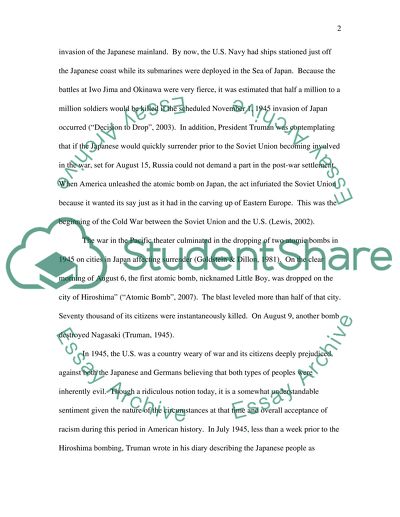Cite this document
(“What are the arguments for and against the dropping of the atomic Essay”, n.d.)
What are the arguments for and against the dropping of the atomic Essay. Retrieved from https://studentshare.org/miscellaneous/1540939-what-are-the-arguments-for-and-against-the-dropping-of-the-atomic-bombs-on-japan-was-this-decision-justified-what-alternatives-existed
What are the arguments for and against the dropping of the atomic Essay. Retrieved from https://studentshare.org/miscellaneous/1540939-what-are-the-arguments-for-and-against-the-dropping-of-the-atomic-bombs-on-japan-was-this-decision-justified-what-alternatives-existed
(What Are the Arguments for and Against the Dropping of the Atomic Essay)
What Are the Arguments for and Against the Dropping of the Atomic Essay. https://studentshare.org/miscellaneous/1540939-what-are-the-arguments-for-and-against-the-dropping-of-the-atomic-bombs-on-japan-was-this-decision-justified-what-alternatives-existed.
What Are the Arguments for and Against the Dropping of the Atomic Essay. https://studentshare.org/miscellaneous/1540939-what-are-the-arguments-for-and-against-the-dropping-of-the-atomic-bombs-on-japan-was-this-decision-justified-what-alternatives-existed.
“What Are the Arguments for and Against the Dropping of the Atomic Essay”, n.d. https://studentshare.org/miscellaneous/1540939-what-are-the-arguments-for-and-against-the-dropping-of-the-atomic-bombs-on-japan-was-this-decision-justified-what-alternatives-existed.


